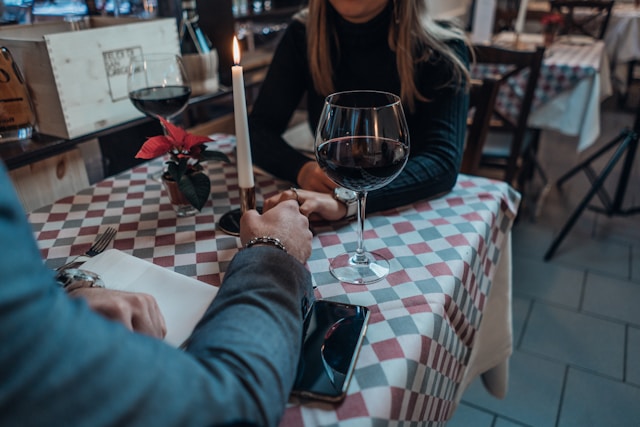Winged Victory
Annie Willis, an only child, lost her widowed mother, Rose, to pancreatic cancer. Along with the natural sadness and helplessness, Annie felt furious at her mother’s doctors, who had not only been evasive but also devoid of hope. Now 31 and single, she felt the paradoxical combination of abject loneliness and rejection of social comforts offered to her.
About three months after Rose’s death, Annie acknowledged that it was time to renew her life, but she had to find a transition point, and so she joined a weekly grieving group which met near her apartment in Broad Ripple, Indianapolis on Thursday nights. Each meeting was initiated by Dr. Helen Winters, a kind psychologist who ran the group and who specialized in grief counseling.
After greetings and condolences to the newcomers, Dr. Winters opened with: “Tonight, I’d like us to discuss our notions of an afterlife, and how we might imagine or fantasize about seeing our lost loved ones again, if we have such thoughts. Of course, we all realize that many religions have somewhat firm notions about the hereafter, and there have been hundreds of reports of near-death experiences where people are revived and awaken and then expound upon seeing their dead relatives, even sightings of Jesus and the golden ‘city on the hill’. But who’s to say whether those reports aren’t biased by what our own religious training has instilled in our subconscious minds since childhood. In spite of these influences, sometimes one can gain some comfort from a promise of reuniting with those we’ve lost. What do you think?”
Linda Quinn raised her hand, and Dr. Winters nodded to her. “Linda?”
“I know it’s crazy, and I know that I’ll get some raised eyebrows here, but I’ve actually seen a psychic to try to reach my dead brother, Butch,” she started. “He promised that he’d try to contact me. I’d give anything to know that he’s all right. I’m still not convinced there’s anything beyond.”
“Yeah,” replied Bea Reynolds, “and I’m not ready to be near death to find out where my Arnold ended up.”
“Aside from our concepts of heaven and hell, what about the notion of reincarnation?” Dr. Winters added.
Annie replied, “We spoiled our poodle Lulu so much that my dad said he’d like to come back as our next one. If I ever get a house, I’m going to get a poodle and call it ‘Harvey’ after my dad.” That brought a few brief chuckles from those in the circle.
The evening meeting continued with jokes, frowns and tears, all seemingly cathartic for those in attendance. Dr. Winters ended the meeting with her “homework” for the next group encounter. “Next time,” she instructed, “I’d like all of you to bring photos of your lost loved ones, and to be able to tell a wonderful story about a memorable experience you had with them. Part of healing from loss is remembering how our loved ones lived, not just that they died.”
That week, on a balmy summer evening, Annie took her family photo albums, along with a glass of Merlot and a bowl of pine nuts (a favorite snack she and her mother loved), to her second-floor apartment’s private outdoor balcony/patio. Even at 8:00 pm, the daylight was still available, and the patio’s normal silence was gently accented with a comfortable, sweet breeze breathing through the nearby sycamore in full foliage. Annie relaxed into her chair, took a sip of her wine and began to flip through album pages. After a few minutes, with no immediate inspiration, she raised her gaze to ponder which experience with her mother she would share with her group.
Just then a female cardinal, without the bright red plumage of the male, descended from a branch of the sycamore and perched on the patio’s ledge. Annie sat statuesque and silent so as to prolong the bird’s presence (because, as her mother, an avid birder, had told her, cardinals are extremely skittish when in the presence of humans). After about half a minute, Annie slowly reached for a pine nut in the bowl on her lap and placed it on the patio ledge in front of her. The cardinal watched her intently, then took a single step, looked at Annie and then the nut, and repeated this succession until the bird was able to reach the nut and take it in her beak, immediately departing, presumably to devour her bounty.
Buoyed, lifted and pleasingly distracted by the encounter, Annie continued looking at her photos of her mother. After about three dozen photos, she came upon one with her mother holding and kissing Sheila, their sun conure whom they originally named Sheldon until she revealed her gender by laying an egg. Her mother adored that bird, and the bird loved to sit on Rose’s shoulder all day long, especially when she would feed Sheila pine nuts. Annie immediately associated the chance rendezvous with the cardinal as a message that she should share adventures of Rose and Sheila to her grieving group. Yes, she thought, her Jungian psychology professor from Purdue would tell her that this was merely “acausal synchronicity,” but she chose instead to use the emotional connection to inspire her choice.
When Annie left for work the next morning, she left a few pine nuts on her patio ledge, and they were gone when she returned home. Was it the same cardinal again (or some other creature, such as a squirrel or chipmunk) partaking in the provided repast? Her curiosity drove her to stop the following evening at Best Buy to purchase a tiny clandestine camera secreted in a small, terracotta pot complete with fake cactus and soil, which she secured on the patio ledge so that she could capture a video of the pine nut culprit. She could have easily purchased an internet-accessible camera, but one with a memory card was abundantly cheaper. When she returned home that evening, she extracted the memory card from the fixture, plugged it into her laptop, and sped through viewing its contents.
What she saw made her smile with joy and close her eyes in contentment. It appeared to be the original cardinal hen returning to consume the feast and, even sweeter, a male cardinal (perhaps her mate?), replete with bright red plumage, accompanied her to the patio ledge for a feeding. Annie imagined a feathery date night out for a fancy meal.
The following days, she left more pine nuts out, engaged the camera and then reviewed the “footage” in the evening, gaining a stronger and stronger connection to the couple as they returned each day for their treat. Harvey and Rose, she named them in her mind. Her excitement enlivened her as she anticipated the entertainment value of her video when she would present it to her grieving group, except that, in the video performance of Sunday and Monday, only the female cardinal appeared and fed. The male had apparently “flown the coop”.
On Tuesday evening, Annie’s cellphone rang. She saw on the Caller ID that it was Frank, her last boyfriend. She had parted ways with Frank when his father had been killed by a drunk driver, and Frank had isolated himself and pushed Annie away with inattention. She let it go to voicemail. She waited a few minutes, and then listened to his message.
“Annie, it’s Frank. I know that you said you were done with me, but I just can’t stop thinking about you, and I just heard that your wonderful mother had passed, and, well…would you let me take you to dinner? Look, I know what a mess I was after my own dad died, and I know that I shut you out, but I’ve been thinking long and hard at what I did to our relationship, and uh…. Please, Annie, it’s just dinner. And if you’re not comfortable with that, maybe meet me for coffee? I’ll be at your favorite restaurant, Capri, off Keystone, tomorrow night at 7:00 pm. If you don’t even want to reply, just show up. Please. If you don’t contact me and don’t show, I’ll understand the message, but I just had to try. Please, Annie.”
Annie played the message again. She thought: Frank was so right for me until he wasn’t. Yes, he was an established fellow, a partner at a large accounting firm; not exactly fancy or flashy, but very stable, and he was mostly neat, kind, considerate and affectionate, qualities Annie had been increasingly seeking after she grew up and lost her taste for “bad boys”. But Frank’s depressive inward turn with his father’s death, instead of leaning on the support offered by Annie, had scared her away. Had he now had an epiphany about his emotional shortfall? What could he even have to say to her? She figured she’d wait until her group met before deciding how to proceed with Frank, if at all, so she texted her reply that she wouldn’t be at the restaurant but would get back to him to reschedule.
At the Thursday group meeting, each participant shared photos, videos and anecdotes about their departed loved ones. Ron Edwards showed a photo of his father, fly-fishing in Montana; Sylvia Brainard showed a video of her husband in a swimming pool, hurling his young grandchildren in what he called, “the Big Throw”. Mary Newman showed a film of her husband charging through their house with their tiny grandson under his arm as the child screamed with delight. When it was Annie’s turn, she opened her laptop and described the circumstances of the cardinals, and then showed photos of her mother, barbecuing outside with Sheila perched on her shoulder. “I guess on some emotional level I knew that the cardinals were pointing me to share my mother’s love of birds….and pine nuts, of course.”
The evening brought laughter, effulgent happiness, inundating tears and many patting of shoulders in solidarity with the group’s purpose. Their hearts were full, and their memories revived with bittersweet joy.
Dr. Winters finally ended the meeting with the following week’s homework assignment. “Next week, we’re going to talk about what moves and efforts you’ve each made so far, however seemingly minuscule or insignificant they may appear, to move on from your grief. Things you hadn’t done since your loss. Things which point to your life still to be lived.”
So enriched was Annie by this meeting that she decided to meet with Frank the following Saturday evening. She texted him about a meeting at Capri, and he acknowledged with a “thumbs-up” emoji.
The following Saturday, Annie prepared for her dinner with Frank. She knew that Frank would be at the restaurant early, because he was always punctual, a habit he claimed was instilled by his late father, who told him that being late was disrespectful to others. Frank would rather arrive a half hour early than be five minutes late for an appointment, but Annie liked that quality, so different from her prior paramours. She obsessed about what to wear and regretted not having her hair blow-dried out before the encounter, but then realized that it was Frank who wanted to impress her, and not vice versa. And yet, on reflection, she decided to wear Frank’s favorite dress, lavender, with spaghetti straps, to display her gentle and slender shoulders.
She arrived at the restaurant promptly at 7:00 pm but sat in her car for ten minutes to avoid seeming too eager for the experience. Finally, she entered the restaurant and informed the hostess of Frank’s reservation. The young woman nodded and directed her to the table where Frank dutifully rose when he saw her approach.
That first moment was awkward for both of them. Frank desperately wanted to embrace her but feared that movement would be off-putting. Annie saw her former lover standing tall and trim in his navy business suit and a perfect Windsor knot in a red Saks Fifth Avenue tie she recalled that she gave to him. He was dressed for a business meeting, and she was dressed for the prom.
“Annie,” Frank said with a huge smile, “Thank you so much for coming.” He scooted around the table to hold her chair while she sat. Part of Annie’s attraction to Frank was his gentlemanly actions: opening doors, walking closer to the street, removing his hat when in an elevator or in a restaurant, always producing an over-sized umbrella to shield her from the rain – all the kind gestures his mother had taught him.
The waiter, Giovanni, introduced himself and asked for beverage orders. Frank, who made a point never to imbibe alcohol when he was going to be driving, only asked for water. Annie nodded her consent for the same.
Frank opened up with, “Look, please take your time with the menu. As soon as we’ve ordered, we can have the privacy to talk.” After they ordered, he continued. “It goes without saying that losing my Dad was devastating. I couldn’t begin my mourning before he died, as I’d imagine you did with your mother’s illness. I just couldn’t process the overwhelming change. I know that it’s the natural progression of things for children to bury their parents. But I had the added element of rage from a driver who had already had two DUI’s to be driving drunk, without a valid license, when he killed my Dad. That anger just festered in me, and it left no room in me to receive comfort or love. I went to the trial of the driver and then to his sentencing, and that filth stood up and told the judge and me how sorry he was and how his disease of alcoholism was the cause of this tragedy. And when the judged asked me for any comments, I stood up and spoke directly to that jerk and told him that he’d probably go to prison, get sober and find Jesus and forgive himself, but I would never forgive him, and I wanted the judge to put him under the prison. I said that if he was ever released that he should not delude himself that he’d “paid his debt to society”, because that “debt” will never be paid. I truly wanted to beat him to death right there. I’ve never felt so angry in my life.”
“What was the sentence?” asked Annie.
“He had other felonies with drugs. Under the three-strikes rule, he got 25 years, and my brother says he’ll serve at least 20. But I’m so ashamed of how I completely lost control. I’ve been seeing a therapist since then, and I’ll continue to go. But part of my therapy is to tell you how much I regret what I did to you. I adore you, Annie. My anger overshadowed how much I needed you. Nothing like this has ever happened to me. I never knew I was capable of drowning in emotions like that. Accountants aren’t known for their violent fantasies.” He smiled sheepishly, and Annie smiled back with her mouth closed and gently shook her head back and forth.
“Look,” Frank continued, “I know there may be nothing left of your feelings for me to think you might learn to care for me again, but if we could just start fresh here and now, two orphans, I promise that you’ll never see me in that state again.”
Annie, who had listened patiently with soft eye contact, drew in a deep breath and lowered her gaze to the table in front of her. After what seemed like a week to Frank, she drew her hand from her lap and placed it on his. “We’ve both suffered great losses, and we’ve both had numbness and loneliness cause us to crawl into a hole and bury ourselves. I go to a grieving group every Thursday night, and I’ve learned that the old adage that “misery loves company” isn’t all that far from truth. Sharing this horrible experience has been a godsend for me, because the group dynamic is a comfort to me, and I can now empathize with others with the same misfortune.”
“Does that mean that you might go out with me again?” asked Frank, who knew after he said it that he’d shown some slight desperation in his forwardness.
“I’m going to an art exhibition by one of my grieving group next Wednesday night at Gallery 42 near Monument Circle. I’ll meet you there at seven o’clock, if you like.”
“He or she isn’t like a Rothko-wannabe, painting all one color, right?” Frank asked, remembering that Annie had been embarrassed by his squelched chuckles when they visited the Museum of Contemporary Art in Chicago together.
“I don’t think so,” Annie smiled with the same memory. “But half the fun of going to an art exhibit is not knowing what you’ll find. Are you game?”
“I’ll be there,” said Frank with a smile.
The rest of the dinner was spent catching up on their recent months apart. Annie even imparted the story of the cardinals and pine nuts, whereupon Frank interjected almost jovially, “Maybe the male was a lothario who had his way with the woman and moved on to another nest.”
“Or maybe he lost his father, and needed space to process his loss,” replied Annie, not in anger or irony but with a look of sympathy.
When they departed from the restaurant to get into their respective cars, Frank followed Annie and, when she opened her driver’s door, he embraced her. “Forgive me,” he whispered in her ear.
“See you on Wednesday night,” she smiled.
Annie drove home, thinking about what she wanted. The encounter with Frank had indeed reminded her that she still had strong feelings for him. She convinced herself that she was open to renewing the relationship.
When she got home, out of habit, she withdrew the memory chip from the potted camera and examined the footage in her laptop. The male cardinal was back with his mate.

Reeve Chudd is a retired tax attorney now living in Carmel, Indiana. He always wanted to be a writer, but he also always wanted to eat regularly. Instead of creating soporific legal documents, he hopes now to retain readers’ attention with worthwhile prose. If he’s unsuccessful, there’s always coffee.



